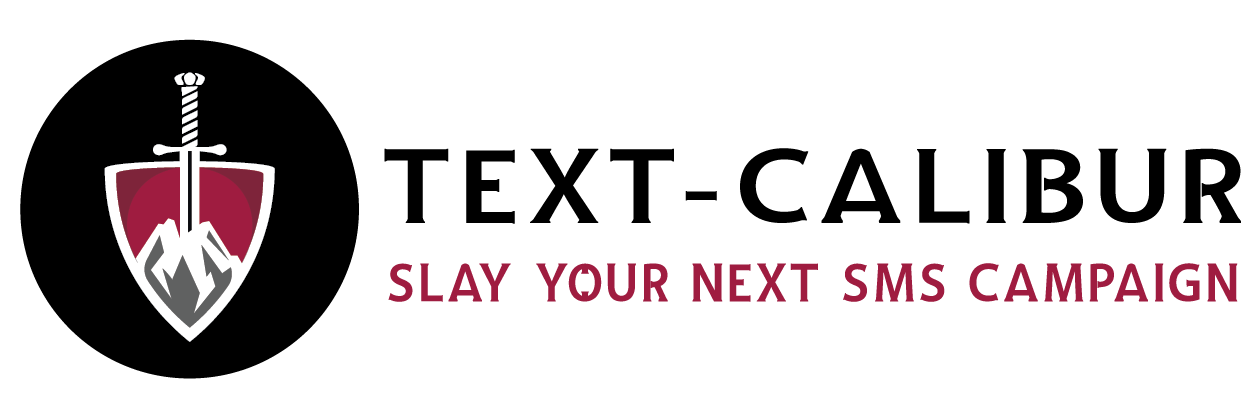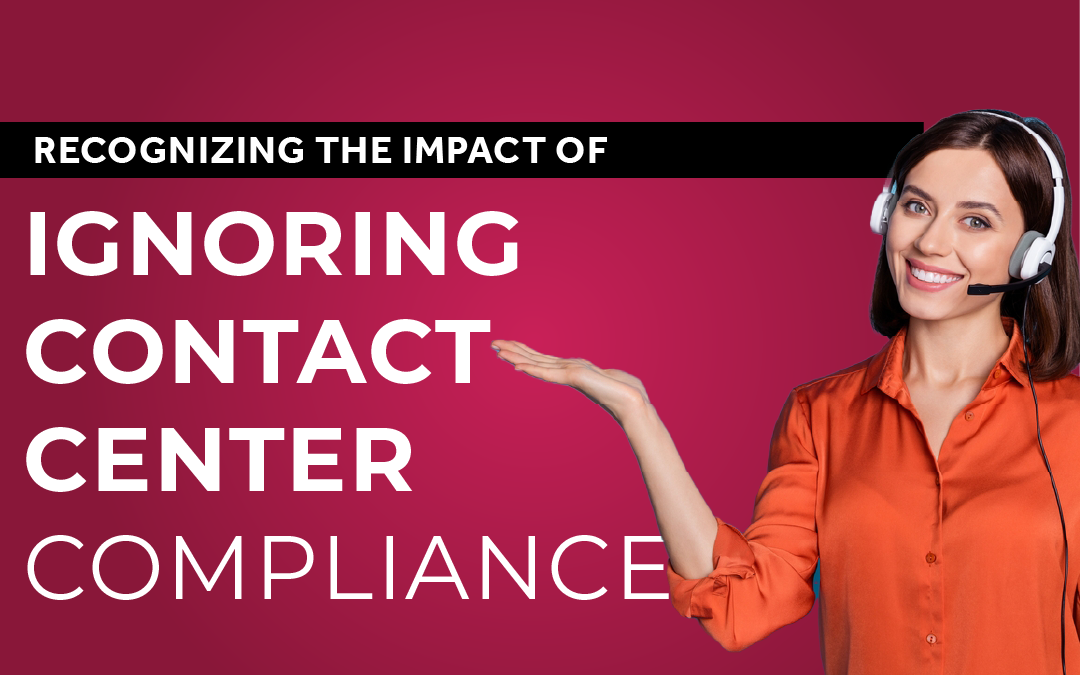Feeling buried under rules and regulations? You are not alone. Managing contact center compliance can feel like solving a puzzle with missing pieces. The fear of a single misstep leading to massive fines is real, and it keeps business owners up at night.
But what if you could understand the rulebook? What if you knew exactly what to do to protect your business and your customers? This guide is here to help you get a handle on contact center compliance, so you can focus on growing your business with confidence.
Table Of Contents:
- Why You Can’t Ignore Contact Center Compliance
- The Big Three of Call Center Rules You Must Know
- TCPA’s New Rules: What Is Changed for Your Contact Center?
- Beyond the Phone: Data Security and Industry-Specific Rules
- Your Simple Checklist for Effective Contact Center Compliance
- Making Compliance Easier with Text-Calibur
- Conclusion
Why You Can’t Ignore Contact Center Compliance
You might think of compliance as just another box to check. But it is much more than that. Getting it right builds the foundation for a successful and respected business, strengthening customer trust. Ignoring it is a risk you cannot afford to take.
It Is the Law (and the Fines Are Real)
Let’s start with the most obvious reason. Government bodies set compliance regulations, and they are not optional. Failing to follow them can lead to crippling fines that can derail a business. We are talking penalties that can reach thousands of dollars for each violation, potentially leading to legal action.
These laws, a core part of consumer protection, exist to shield people from annoying or harmful practices. Following them shows you operate within a legal and ethical framework. This is the baseline for any legitimate business in financial services or any other industry.
Happy Customers Are Loyal Customers
Nobody likes getting unwanted calls or messages. When you respect a customer’s wishes, you earn their trust. Regulatory compliance is a direct line to a better customer experience.
Happy customers stick around longer and are more likely to recommend you. By protecting their customer data and their privacy, you show them they are valued. That is how you build a loyal following.
Your Reputation Is on the Line
Word gets around fast. A business known for spammy calls or shady tactics will quickly get a bad reputation. This can be very hard to fix, as negative customer interactions are shared widely.
On the other hand, a company known for its commitment to compliance is seen as trustworthy. This positive image attracts new customers and helps you keep the ones you have. It is a long term investment in your brand’s health and reduces compliance risk.
Stand Out From the Crowd
In a busy market, every advantage counts. Some of your competitors might be cutting corners on compliance. By making it a priority, you set yourself apart from the rest.
Customers are getting smarter about who they do business with. They actively choose companies that demonstrate ethical practices and strong data protection. Your strong compliance record could be the very thing that makes them pick you.
The Big Three of Call Center Rules You Must Know
Going through legal documents can be a nightmare. To make it simpler, most of the important rules fall under three main categories. Understanding these is the first step toward solid contact center compliance.
The Do Not Call (DNC) Registry
You have probably heard of this one. The Do Not Call Registry is a list of people who have said they do not want to get telemarketing calls. The Federal Trade Commission (FTC) manages this list of phone numbers.
Before you call anyone, you have to check your list against the national DNC registry. You also need to keep your own internal DNC list. This includes anyone who has ever told you directly to stop calling them.
Some states have their own DNC lists too. So you need to check the federal list, the state list, and your internal list. It is a lot to track, but TCPA compliance makes it mandatory.
The Telemarketing Sales Rule (TSR)
The Telemarketing Sales Rule (TSR) is another big one from the FTC. This sales rule protects people from deceptive or abusive telemarketing practices. This rule is about being honest and upfront in your sales calls.
Under the TSR, you have to tell people certain things right away. This includes who you are, the purpose of the call, and the nature of the goods or services being offered. You cannot make false or misleading claims about your products or services.
The rule also sets calling time restrictions. You can only call between 8 a.m. and 9 p.m. in the recipient’s time zone. Breaking these telemarketing sales rules comes with its own set of heavy fines.
The Telephone Consumer Protection Act (TCPA)
The TCPA is a major piece of legislation for anyone using a phone to contact customers. It covers everything from robocalls and autodialers to marketing text messages. The Telephone Consumer Protection Act was created to protect consumer privacy from unwanted electronic communication.
The most important part of the TCPA is consent. You generally need to get prior express written consent before you can make telemarketing calls or send texts with an automated system. Without this clear permission, you are in violation.
The penalties for breaking TCPA rules are steep. Consumers can sue for $500 per violation. If the violation is found to be willful, that amount can jump to $1,500.
| Regulation | Core Requirement | Potential Penalties |
|---|---|---|
| Do Not Call (DNC) Registry | Do not call numbers on the national or internal DNC lists. Scrub lists at least every 31 days. | Fines up to $51,744 per call. |
| Telemarketing Sales Rule (TSR) | Disclose caller identity and purpose of call. Adhere to calling time restrictions (8 a.m. – 9 p.m.). | Fines up to $51,744 per violation. |
| Telephone Consumer Protection Act (TCPA) | Obtain prior express written consent for autodialed calls and texts. | $500 to $1,500 per violation, payable to the consumer. |
TCPA’s New Rules: What Is Changed for Your Contact Center?
Just when you think you have it all figured out, the rules change. The Federal Communications Commission (FCC) recently updated TCPA guidelines. These changes have a big impact on contact center compliance regulations.
Staying on top of these updates is critical. The new rules are stricter and give consumers more control. Here is what you need to know about the biggest changes.
- One-to-One Consent: This is a big one. Consent now needs to be for one specific seller at a time. You can no longer use a single form to get consent for a long list of partners.
- Logical and Topical: Your call must be logically and topically related to the website where the person gave consent. You cannot get permission on a car insurance site and then call them about a home mortgage.
- DNC for Texts: The protections of the Do Not Call registry now officially extend to text messages. You must scrub your lists for DNC numbers before sending SMS campaigns.
- Easy Opt-Outs: People can now revoke their consent in any reasonable way. This could be a text reply, an email, or even a verbal request. You have to honor it promptly.
- AI Voice Calls Need Consent: The TCPA now applies to calls that use artificial intelligence to generate a voice. These calls need prior express written consent, just like a classic robocall.
These new rules put a lot more responsibility on your shoulders. Documentation is more important than ever. You need a rock solid system to track every piece of consent you get.
Beyond the Phone: Data Security and Industry-Specific Rules
Compliance is not just about phone calls and text messages. Many contact centers handle sensitive customer information that requires additional layers of protection. Understanding data security and industry-specific regulations is essential.
Payment Card Industry Data Security Standard (PCI DSS)
If your center agents handle credit card or payment card information, you must follow the Payment Card Industry Data Security Standard (PCI DSS). This security standard was created by major card brands to reduce credit card fraud. PCI DSS provides a framework of security measures to protect cardholder data.
A data breach involving payment card data can be catastrophic. It can lead to heavy fines, loss of the ability to process payments, and severe damage to your reputation. The card industry data security standard includes requirements like encrypting data transmission, using firewalls, and restricting access to cardholder information.
Health Insurance Portability and Accountability Act (HIPAA)
Contact centers that operate in the healthcare space must comply with the Health Insurance Portability and Accountability Act (HIPAA). This law protects the privacy and security of sensitive patient health information. HIPAA applies to anyone dealing with health insurance, from providers to business associates.
HIPAA’s privacy rule sets national standards for who can view and receive patient information. Its security rule outlines the safeguards needed to protect electronic health data. The health insurance portability aspect is just one part of this comprehensive data protection regulation.
Fair Debt Collection Practices Act (FDCPA)
For contact centers involved in debt collection, the Fair Debt Collection Practices Act (FDCPA) is a critical piece of legislation. The act outlines what debt collectors can and cannot do when collecting certain types of debts. Its goal is to stop abusive, unfair, or deceptive debt collection practices.
The FDCPA has strict rules about when and how debt collectors can contact consumers. For instance, collectors cannot call before 8 a.m. or after 9 p.m. local time. They also cannot use harassment, make false statements, or engage in any unfair collection practice.
Violating the FDCPA can lead to legal action from both federal agencies and consumers. Proper compliance training on fair debt collection is vital for any agent involved in this work. Understanding these collection practices helps protect consumer rights and your business.
Your Simple Checklist for Effective Contact Center Compliance
Feeling overwhelmed? Let’s break it down into a simple checklist. Following these steps can help keep your operations on the right side of the law. This is your game plan for better contact center compliance.
- Build a Compliance Team: Dedicate a person or team to staying on top of the rules. They should conduct regular compliance audits and keep everyone trained on the latest regulations. This team is responsible for quality management and compliance monitoring.
- Train Your People Regularly: Everyone in your call center needs to know the rules. Regular compliance training makes sure your team understands how to handle consent, opt-outs, and sensitive customer data safely. Effective training for center agents is a primary defense against compliance issues.
- Scrub Your Lists Every Time: Before you start any campaign, check your numbers against the National DNC Registry. Also, check any relevant state lists and your internal DNC list. Do this every 31 days at a minimum to maintain regular compliance.
- Keep Detailed Records: Document everything. Keep clear records of who gave consent, when they gave it, and exactly what they agreed to. This is your best defense if a complaint arises or a data breach occurs.
- Use the Right Technology: Modern center solutions can automate a lot of the compliance process. Center software and QA software can help track consent and manage your DNC lists. This reduces the chance of human error and improves quality assurance.
- Monitor Your Calls: Regularly listen to recorded calls to check for adherence to compliance requirements. This helps you spot potential issues and correct them quickly. It also improves the overall quality of your customer interactions.
- Watch the Clock: Always respect local time zones. Remember the 8 a.m. to 9 p.m. calling window. Some states have even stricter time limits, so know the rules for where you are calling.
By following these best practices, you create a culture of compliance. It protects your business and shows customers you care about their privacy. This builds a foundation of trust that helps your company grow.
Making Compliance Easier with Text-Calibur
All of this can sound like a lot of work. That is because it is. But the right software can make a huge difference, and that is where a tool like Text-Calibur comes in!
Text-Calibur helps you manage your customer communications effectively. It streamlines your processes while keeping compliance in mind. It gives you the power to run your business without the constant worry of breaking the rules.
For instance, managing SMS campaigns becomes much simpler. With features like keyword responders and automated replies, you can handle opt-in and opt-out requests instantly. This helps you honor consent revocations the moment they happen, a key compliance note for TCPA.
The system is also built to support your lead generation efforts. It offers call forwarding, toll-free numbers, and direct inward dialing (DID) services. These tools let you connect with leads while helping you manage the necessary documentation along the way.
Think of it as your command center for customer outreach. Text-Calibur helps you organize everything from text message automation to click tracking. You get the data and control you need to run smart campaigns that respect customer preferences and legal requirements.
Ready to see how Text-Calibur can simplify your operations? Let us show you how to maximize lead generation with powerful text message automation, call forwarding, and SMS campaigns. You can contact sales to learn more.

Conclusion
Mastering contact center compliance is not an impossible task. It is about understanding the rules and building good habits. By prioritizing customer privacy, you do more than just avoid fines; you build a brand that people trust and respect.
The key is to be proactive, not reactive. Stay informed about rule changes and train your team well. Remember that strong contact center quality and compliance are a competitive advantage in today’s market.
Using powerful software like Text-Calibur gives you an edge. Give it a shot! It takes the heavy lifting out of tracking consent and managing communications. This lets you focus on what you do best: growing your business and serving your customers.

